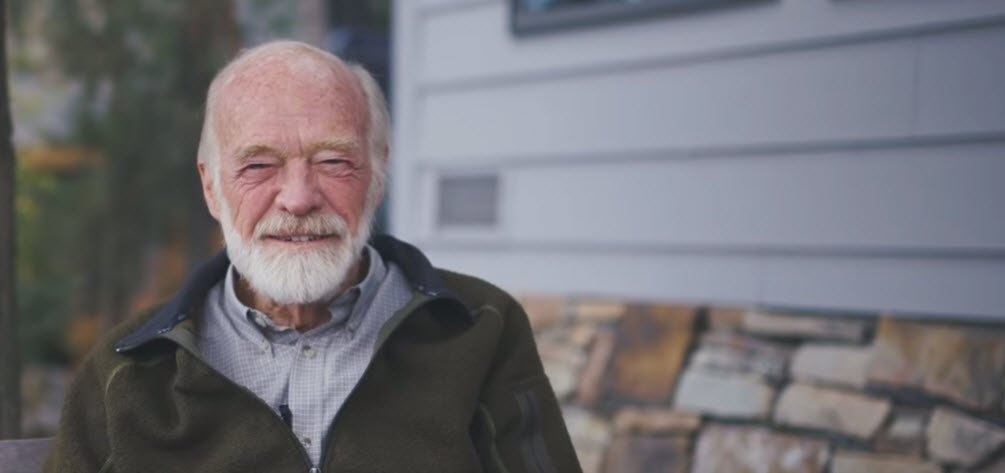“You have to let your father and father figures go. You must stop seeing yourself through their eyes and trying to make them proud of you.
For as long as you can remember, you have been a pleaser, depending on others to give you an identity. You need not look at that only in a negative way. You wanted to give your heart to others, and you did so quickly and easily. But now you are being asked to let go of these self-made props and trust that God is enough for you. You must stop being a pleaser and reclaim your identity as a free self.”
Toys
“The innocence of the child is its immediacy and nearness to everything. Rilke says that in all our subsequent life we will never again be as close to any thing as we were to our toys in childhood. The toy becomes your friend and closest confidant. Before and below words, you invest the delight and concern of your heart in the toy. If you are clearing out an attic and you come across one of your old toys from childhood, it can release a flood of memories. The child lives in the neighbourhood of wonder where innocence keeps mystery playful…
In contrast to how a child belongs in the world, adult belonging is never as natural, innocent, or playful. Adult belonging has to be chosen, received, and renewed. It is a lifetime’s work.
”
Never Horses
“Never Horses
The landscape is littered with ponies never to become horses, lazily grazing til kingdom come.
Men are bound to perpetual adolescent thought and behavior; over the last 70 years, the once strong spine of a man has become a pile of sugar.
Words like “maturity,” “commitment,” and “sacrifice” are despised in an era of rampant pornography consumption and low carbohydrate diets, as energy drinks get a man through the day.
The prophetic edge dissipates as men stare mindlessly into their phones, looking for purpose but only finding dopamine, followed by feelings of loneliness and anxiety.
Men are too scared to dream, and so they quit making art.
Men are too indifferent to act, and so they forsake justice.
Men are too stubborn to grow, and so they refuse to read.
Men are too insecure to ask questions, and so they settle to admire the notion of character in others but do not possess it for themselves.
Men are too distracted with trivial things, and so light refuses to come into their eyes; love will never enter their hearts, and life abandons them to merely exist.
Men are too proud to listen to their own conscience, much less anyone else, and so they have lost any sense of curiosity.
Men are too bored to fly a kite on a sunny day, so they don’t laugh from their bellies; they only laugh from their brains.
Men are too embarrassed by their past and so they drag it into today.
Men are too self-interested, and so they call in sick to work.
The intellectuals have reinvented the image of a man so many times we no longer know what one is.
The sluggish, intolerant society to which we belong will use the same knife to cut out the tongue of truth in the morning to remove everything of significance by evening.
God forbid me to walk through this grief-stricken world without hope, vision, or meaning.
God forbid me to pander to anyone.
God, let my yes be yes and no be no.
God, let the words of my mouth and the meditation of my heart be pleasing in your sight.
May repentance mark my life.
May kindness be quick to fall from my lips.
May generosity flow through these hands.
May creativity come from this mind.
God, make me a man.
“Do not harden your hearts as in the rebellion.”
You have said, “Seek my face,” and my heart says to you, “O Lord, your face, I seek.”
The landscape is littered with ponies never to become horses.”
"Cool of the Day" A Pastoral Approach to Dealing with Shame
One of the incredible responsibilities I have as a pastor is helping people process, steward, and release their shame in light of Jesus, the gospel, and the indwelling Holy Spirit who comforts, guides, and empowers us to walk in new life. Shame is an overwhelmingly powerful force; moving through shame and into a place of belonging can be difficult work for a number of reasons. I recently observed something that I’d never known seen before. In the Garden of Eden, right after Adam and Eve sin, we read in Genesis “God came walking in the cool of the day” (3:8). The Church Father Jerome commented,
“God sought out Adam, not at midday but in the evening. Adam had already lost the sunlight, for his high noon was over. ”
Perhaps God sought out his children in the dark rather than the light so as to not intensify their shame but instead waited to gently enter into a less-lit space where healing, reconciliation, and belonging could be made possible again. Such is the nature of grace. For those involved in pastoral care, wisdom takes not only the truth of the matter into account but also the timing, tact, and tone of the wounded.
May Sarton | Now I Become Myself
“Now I become myself. It’s taken
Time, many years and places;
I have been dissolved and shaken,
Worn other people’s faces,
Run madly, as if Time were there,
Terribly old, crying a warning,
”Hurry, you will be dead before—“
(What? Before you reach the morning?
Or the end of the poem is clear?
Or love safe in the walled city?)
Now to stand still, to be here,
Feel my own weight and density!
The black shadow on the paper
Is my hand; the shadow of a word
As thought shapes the shaper
Falls heavy on the page, is heard.
All fuses now, falls into place
From wish to action, word to silence,
My work, my love, my time, my face
Gathered into one intense
Gesture of growing like a plant.
As slowly as the ripening fruit
Fertile, detached, and always spent,
Falls but does not exhaust the root,
So all the poem is, can give,
Grows in me to become the song,
Made so and rooted by love.
Now there is time and Time is young.
O, in this single hour I live
All of myself and do not move.
I, the pursued, who madly ran,
Stand still, stand still, and stop the sun!”
Ted Loder | There Is Something I Wanted to Tell You
“Holy One,
there is something I wanted to tell you,
but there have been errands to run,
bills to pay,
arrangements to make,
meetings to attend,
friends to entertain,
washing to do...
and I forget what it is I wanted to say to you,
and mostly I forget what I’m about or why.
O God,
don’t forget me, please,
for the sake of Jesus Christ....
Eternal one,
there is something I wanted to tell you,
but my mind races with worrying and watching,
with weighing and planning,
with rutted slights and pothole grievances,
with leaky dreams
and leaky plumbing
and leaky relationships that I keep trying to plug up
and my attention is preoccupied with loneliness,
with doubt,
and with things I covet
and I forget what it is I want to say to you
and how to say it honestly
or how to do much of anything.
O God,
don’t forget me, please,
for the sake of Jesus Christ....
Almighty one there is something I wanted to ask you
but I stumble along the edge of a nameless rage,
haunted by a hundred floating fears,
of war,
of losing my job
of failing
of getting sick and old
having loved ones die
of dying
and I forget what it is the real question is I wanted to ask
and I forget to listen anyway because you seem unreal and far away
and I forget what it is I have forgotten.
O God,
don’t forget me, please,
for the sake of Jesus Christ....
Oh father in heaven perhaps you’ve already heard what I wanted to tell you.
What I wanted to ask in my blundering way is
don’t give up on me, don’t become too sad about me,
but laugh with me,
and try again with me,
and I will with you, too.
O Father in Heaven,
perhaps you’ve already heard what I wanted to tell you,
What I wanted to ask is,
forgive me,
heal me,
increase my courage, please.
Renew in me a little of love and faith,
and a sense of confidence,
and a vision of what it might mean to live as though you were real,
and I mattered,
and everyone was sister and brother.
What I wanted to ask is for peace enough, to want and work for more,
for joy enough to share
and for awareness that is keen enough to sense your presence
here,
now,
there,
then,
always.
Amen”
Warren | On "The Rapture" & Advent
“…at times Christians have made the return of Christ seem either hokey or horrifying. In much of the popular media surrounding the “rapture” and the “apocalypse” – books, films, tracts, and so on — teachings about the eschaton, or the end times, are used as a scare tactic: give your life to Jesus or you’ll have to endure catastrophes to come. When I think of the second coming of Christ, my mind flits between Tim Lahaye’s Left Behind series, Hal Lindsey’s The Late Great Planet Earth, and bumper stickers that proclaim, “In case of rapture, this car will be un-manned.” My husband’s childhood church in Georgia had an in-case-of-rapture vault (no joke) that contained a TV, a VCR, and a video explanation of what to do after the rapture had occurred and you were left behind. I suppose they hoped someone would stumble in and find it amid the apocalypse.
Churches with rapture vaults would be incomprehensible to the vast majority of Christians throughout time. The idea of the rapture as it’s popularly conceived sprung up around the nineteenth century. But as a child and a teenager, my husband didn’t know this had not always been the church’s teaching about Scripture. These ideas were in part why he gave up on church for a while after he left home for college.
These bizarre teachings are not good news. Bad second-coming theology has done a number on our theological imaginations. It has made the return of Christ seem like the stuff of badly written fan fiction, apocalyptic horror, and anti-intellectual pie-in-the-sky escapism. These novel teachings have made many Christians anxious about a doctrine that has historically been a chief source of hope for the church. In order to faithfully and fully enter into this “coming” of Advent, then, we may have some unlearning to do.”
”
The O Antiphons
This year I introduced our church to the “O Antiphons” (anti meaning “to return” and phone meaning “sound”). These are seven, short, one-sentence prayers that have belonged to church history since medieval times. Believers have prayed once a day over the last week of Advent building up to Christmas. These one-sentence prayers are prayers of response to what the prophets declared Jesus, the messiah would bring; but he did not just come to bring gifts; he came to reveal his very self. Each of the O Antiphons is found in the Advent hymn, O Come, O Come, Emmanuel.
ANTIPHON 1
Whom did he consult, and who made him understand? Who taught him the path of justice, and taught him knowledge, and showed him the way of understanding?
Isaiah 40:14
O Wisdom, coming forth from the mouth of the Most High, reaching from one end to the other, mightily and sweetly ordering all things: Come and teach us the way of prudence.
ANTIPHON 2
God said to Moses, “I am who I am.” And he said, “Say this to the people of Israel: ‘I am has sent me to you.’ ”
Ex 3:14
You brought your people Israel out of the land of Egypt with signs and wonders, with a strong hand and outstretched arm, and with great terror. 22 And you gave them this land, which you swore to their fathers to give them, a land flowing with milk and honey
Jer. 32:21–22.
Now I want to remind you, although you once fully knew it, that Jesus, who saved a people out of the land of Egypt, afterward destroyed those who did not believe.
Jude v. 5.
O Adonai, and leader of the House of Israel, who appeared to Moses in the fire of the burning bush and gave him the law on Sinai: Come and redeem us with an outstretched arm.
ANTIPHON 3
There shall come forth a shoot from the stump of Jesse, and a branch from his roots shall bear fruit.
And the Spirit of the Lord shall rest upon him, the Spirit of wisdom and understanding, the Spirit of counsel and might, the Spirit of knowledge and the fear of the Lord. And his delight shall be in the fear of the Lord. He shall not judge by what his eyes see, or decide disputes by what his ears hear, but with righteousness he shall judge the poor, and decide with equity for the meek of the earth; and he shall strike the earth with the rod of his mouth, and with the breath of his lips he shall kill the wicked. Righteousness shall be the belt of his waist, and faithfulness the belt of his loins. The wolf shall dwell with the lamb, and the leopard shall lie down with the young goat, and the calf and the lion and the fattened calf together; and a little child shall lead them. The cow and the bear shall graze; their young shall lie down together; and the lion shall eat straw like the ox. The nursing child shall play over the hole of the cobra, and the weaned child shall put his hand on the adder’s den. They shall not hurt or destroy in all my holy mountain; for the earth shall be full of the knowledge of the Lord as the waters cover the sea. In that day the root of Jesse, who shall stand as a signal for the peoples—of him shall the nations inquire, and his resting place shall be glorious.
Is 11:1–10
O Root of Jesse, standing as a sign among the peoples; before you kings will shut their mouths, to you the nations will make their prayer: Come and deliver us, and delay no longer.
ANTIPHON 4
And I will place on his shoulder the key of the house of David. He shall open, and none shall shut; and he shall shut, and none shall open.
Is 22:22
Key of David and scepter of the House of Israel; you open and no one can shut; you shut and no one can open: Come and lead the prisoners from the prison house, those who dwell in darkness and the shadow of death.
ANTIPHON 5
Violence shall no more be heard in your land, devastation or destruction within your borders; you shall call your walls Salvation, and your gates Praise. The sun shall be no more your light by day, nor for brightness shall the moon give you light; but the Lord will be your everlasting light, and your God will be your glory. Your sun shall no more go down, nor your moon withdraw itself; for the Lord will be your everlasting light, and your days of mourning shall be ended.
Is 60:18–20
O Morning Star, splendor of light eternal and sun of righteousness: Come and enlighten those who dwell in darkness and the shadow of death.
ANTIPHON 6
Who would not fear you, O King of the nations? For this is your due; for among all the wise ones of the nations and in all their kingdoms there is none like you.
Jer 10:7
O King of the nations, and their desire, the cornerstone making both one: Come and save the human race, which you fashioned from clay.
ANTIPHON 7
Therefore the Lord himself will give you a sign. Behold, the virgin shall conceive and bear a son, and shall call his name Immanuel
Is 7:14
O Emmanuel, our king and our lawgiver, the hope of the nations and their Savior: Come and save us, O Lord our God.
Buechner | On Advent
“The house lights go off and the footlights come on. Even the chattiest stop chattering as they wait in darkness for the curtain to rise. In the orchestra pit, the violin bows are poised. The conductor has raised his baton.
In the silence of a midwinter dusk there is far off in the deeps of it somewhere a sound so faint that for all you can tell it may be only the sound of the silence itself. You hold your breath to listen.
You walk up the steps to the front door. The empty windows at either side of it tell you nothing, or almost nothing. For a second you catch a whiff in the air of some fragrance that reminds you of a place you’ve never been and a time you have no words for. You are aware of the beating of your heart.
The extraordinary thing that is about to happen is matched only by the extraordinary moment just before it happens. Advent is the name of that moment.
The Salvation Army Santa Claus clangs his bell. The sidewalks are so crowded you can hardly move. Exhaust fumes are the chief fragrance in the air, and everybody is as bundled up against any sense of what all the fuss is really about as they are bundled up against the windchill factor.
But if you concentrate just for an instant, far off in the deeps of you somewhere you can feel the beating of your heart. For all its madness and lostness, not to mention your own, you can hear the world itself holding its breath.
”
Nouwen: Pursuing Irrelevance
“I am deeply convinced that the Christian leader of the future is called to be completely irrelevant and to stand in this world with nothing to offer but his or her own vulnerable self. That is the way Jesus came to reveal God’s love. The great message that we have to carry, as ministers of God’s Word and followers of Jesus, is that God loves us not because of what we do or accomplish, but because God has created and redeemed us in love and has chosen us to proclaim that love as the true source of all human life.””
Pressfield | Resistance is Most Powerful at the Finish Line
“Odysseus almost got home years before his actual homecoming. Ithaca was in sight, close enough that the sailors could see the smoke of their families’ fires on shore. Odysseus was so certain he was safe, he actually lay down for a snooze. It was then that his men, believed there was gold in an ox-hide sack among their commander’s possessions, snatched this prize and cut it open. The bag contained the adverse Winds, which King Aeolus had bottled up for Odysseus when the wanderer had touched earlier at his blessed isle. The winds burst forth now in one mad blow, driving Odysseus’ ships back across every league of ocean they had with such difficulty traversed, making him endure further trials and sufferings before, at last and alone, he reached home for good.
The danger is greatest when the finish line is in sight. At this point, Resistance knows we’re about to beat it. It hits the panic button. It marshals one last assault and slams us with everything it’s got.
The professional must be alert for this counterattack. Be wary at the end. Don’t open that bag of wind.
”
Peterson: To Follow Jesus
“To follow Jesus implies that we enter into a way of life that is given character and shape and direction by the one who calls us. To follow Jesus means picking up rhythms and ways of doing things that are often unsaid but always derivative from Jesus, formed by the influence of Jesus. To follow Jesus means that we can’t separate what Jesus is saying from what Jesus is doing and the way that he is doing it. To follow Jesus is as much, or maybe even more, about feet as it is about ears and eyes.”
Longfellow | Changed
“From the outskirts of the town,
Where of old the mile-stone stood,
Now a stranger, looking down,
I behold the shadowy crown
Of the dark and haunted wood.
Is it changed, or am I changed?
Ah! The oaks are fresh and green,
But the friends with whom I ranged
Through their thickets are estranged
By the years that intervene. ”
Knocking on Me
“It’s good to try to remember moments that are easily forgotten because it is within those moments that I suspect Jesus’ words ring the truest. “The kingdom of God is among you,” he remarked to the grumpy, pedantic, questions of his opponents. More interested in indulging their high-brow religiosity, the scared little boys who grew up to wear big black hats exposed their ignorance of mind and absence of heart as they blithered on right before the great I AM.
People hide behind all kinds of things; doors, clothes, calories, and questions. Were they really all that interested in the Kingdom of God? I suppose they’re not so different from me. I’d rather ask questions about things I really don’t care about so that I don’t have to ask the question that I need so desperately answered; namely, “Am I worthy love?”
On rare occasions, I am present enough in a moment to catch a glimpse of the Kingdom. It’s there and gone so quickly. Most of the time, I miss it, or better said, I forget to name it for what it really is. But today, I realize that I can be present in my memories and feel my way toward Home ahead by living in the Home behind.
My mother played the slightly out-of-tune piano in our little Baptist church off Main Street. I sat next to my father; he wore a heavily starched white shirt, red tie, black slacks, and nicely polished black shoes. He was handsome in his late thirties, with a full head of hair, a good-paying job, and a gentlemanly smile. He’d nicked his chin an hour earlier at home, leaning over the sink shaving. He quietly unwrapped the silver around the stick of Big Red gum. The smell of cinnamon lingered and the warm morning light spilled through the stained glass as the G sharp rang perfectly. I leaned on him. He’s been gone for nearly fourteen years.
I didn’t know that while I was sitting there on the church bench, I was knocking on the door of the Kingdom of God. Maybe it was knocking on me?
And the answer is yes; I AM.
”
Barnes | Keep Converting
“Debate about how one gets converted has gone on for a long time. It is linked to competing perspectives on baptism, evangelism, and the nature of the church. That debate is very important, but we only scratch the surface of the doctrine of conversion if we limit it to a discussion of when the life of a a Christian believer begins.
Conversion describes a lot more of the Christian journey than its initiation. It also describes what happens to those who stay on the road behind Jesus, as he takes them to a place they would rather not go and gives them a vocation that changes everything.
Central to the Bible’s teaching on conversion is the call to make a choice. Confronted with abandonment, Christians can either turn their hearts back to the things they lost or turn toward the hope that Jesus Christ is in fact their Savior.
The theological term for this choice is repentance. The Greek word for repentance is metanoia. It simply means “to turn.” Before it became a biblical term, metanoia was commonly used to describe the process of turning around. If a man left the house and then remembered he had forgotten something, he would ‘repent,’ turn around and go back home. Over the centuries, the church endowed the word with connotations of judgement and remorse. But the biblical call to repent and be converted still essentially means to turn toward the work God is doing in our lives.
Life continues to confront Christians with invitations to repent and be converted, even after we have begun to turn our faces toward God. Our eternal salvation may be secured by the initial decision to accept Christ’s forgiveness, but conversion is the lifelong process of turning away from our plans and turning toward God’s maddening, disruptive creativity.
In spite of all our carefulness and hard work, we probably will not achieve the life of our dreams. In fact, our dreams are precisely the things that have abandoned us. But it is then that we hear the invitation of Jesus Christ, ‘Now is the opportunity to step out, walk forward and give your life to God.’
”
Remember Me
“Jesus, remember me when you come into your kingdom.”
”
“Thieves know where to look for valuables. They understand that it takes hard work to seek out hidden treasure. They know that the jewels are locked in a big black safe. They know that the cash is two stories underground at the bank. They know where things of worth are stored. So, even from his cross, the thief had scoped out the situation, he had cased the joint, and in the right moment, he thought that just maybe grace could come his way and that he could get one more thing out of a world from which he had taken so much.
He asked for the only thing Jesus had left to give. He asked for his memory. He asked to be remembered. Have you ever thought to ask someone this question? “Will you remember me?” Surely some scoffed in dying sunlight at the thief’s pitiful request. But was really it all that pitiful of an ask?
If you’ve ever been truly remembered by someone else, then you know the man strung up next to the Messiah was actually asking for the moon. To asked to be remembered is not a request of the brain; it is a request of the heart.
Think of those people throughout your life who cared enough to pick up the phone or come by or send you a letter in the post. The people who both smile at you and smile about you. Those you moved away from or those who moved away from you that still remember you.
The ones you are thinking about are your life. When the heart speaks to the mind, and a face suddenly appears, we call that love.
With hands pinned open, the thief could finally receive love.
”
“Jesus answered him, “Truly I tell you, today you will be with me in paradise.”
”
Guest Room
“
A soft, warm, yellow light lands on the small wooden desk. Tiny dust particles hang in the sun ray; suspended, moving, living, floating like the universe herself. The guest room bed is perfectly made; the sheets are pulled tight, and the green comforter is tucked neatly beneath the pillows. The smell of toast, detergent, and black tea tiptoed up the stairs and filled the silent room. Everything is still within, and the pine trees sway without. A blue jay chirps. I can see my grandfather, Roland, strike a match, and light his pipe. He changes the channel. The Braves are winning. A tomato sandwich on a paper plate. Remembering a late summer Monday afternoon at my Grandparent’s home is how I keep the Sabbath not just in my mind but in my heart; my soul. In closing my eyes and becoming present, I visit the guest room in me.”
Cul-De-Sac
The place in which you live can become one of the greatest spiritual formation teachers of your life if you’ve got eyes to see. Five years ago we bought our home in Seattle and it sits on a cul-de-sac. Living in a circle is hardly a dead end; we’re living life with both our houses and our neighbors facing each other.
We all enjoy our privacy and respect one another’s space but we’re also together in ways that I hadn’t quite experienced before. Five years ago I quickly began to notice that my neighbor’s looks, thoughts, beliefs, habits and quirks are not something for me to judge or ignore; they’re here for me to love, appreciate, protect, and respect. There are sacred moments and places that only increase in worth when they’re shared. Our cul-de-sac provides such a life for which we are forever grateful. A Saturday night shooting hoops turns into a game of H-O-R-S-E. A Sunday afternoon of bringing lunches and lawn chairs out, talking about what’s on the calendar are discussed. A Tuesday evening knock on the door asking for soy sauce, a Thursday morning text, “I forgot to put out my recycling! Can you take care of it for me?” are all there not by happenstance but by design. The seven houses that make up our quiet but lively little street has become a silent mentor in a lifestyle of faithful presence.
Schall: Wasting Time
An afternoon coffee, Brian and Roger Eno’s “Mixing Colours”, and the book of Malachi did my soul well on Monday at Golden Gardens.
“We know that the only time worth having is the time we waste on our friends. And our prayer is the time we ‘waste’ with God, the time we take to comprehend all that is given to us, all that is.”
Peterson on Crowds (or to use the More Gross, Modern Word, ‘Platform’)
“Dear Phillip,
I’ve been thinking about our conversation last week and want to respond to what you anticipate in your new congregation. You mentioned its prominence in the town, a center, a kind of cathedral church that would be able to provide influence for the Christian message far beyond its walls. Did I hear you right?
I certainly understand the appeal and feel it myself frequently. But I am also suspicious of the appeal and believe that gratifying it is destructive both to the gospel and the pastoral vocation. It is the kind of thing America specializes in, and one of the consequences is that American religion and the pastoral vocation are in a shabby state.
It is also the kind of thing for which we have abundant documentation through twenty centuries now, of debilitating both congregation and pastor. In general terms it is the devil’s temptation to Jesus to throw himself from the pinnacle of the temple. Every time the church’s leaders depersonalize, even a little, the worshipping/loving community, the gospel is weakened. And size is the great depersonalizer. Kierkegaard’s criticism is still cogent: “the more people, the less truth.”
The only way the Christian life is brought to maturity is through intimacy, renunciation, and personal deepening. And the pastor is in a key position to nurture such maturity. It is true that these things can take place in the context of large congregations, but only by strenuously going against the grain. Largeness is an impediment, not a help.
Classically, there are three ways in which humans try to find transcendence—religious meaning, God meaning—apart from God as revealed in the cross of Jesus: through the ecstasy of alcohol and drugs, through the ecstasy of recreational sex, through the ecstasy of crowds. Church leaders frequently warn against the drugs and the sex, but, at least in America, almost never against the crowds. Probably because they get so much ego benefit from the crowds.
But a crowd destroys the spirit as thoroughly as excessive drink and depersonalized sex. It takes us out of ourselves, but not to God, only away from him. The religious hunger is rooted in the unsatisfactory nature of the self. We hunger to escape the dullness, the boredom, the tiresomeness of me. We can escape upward or downward. Drugs and depersonalized sex are a false transcendence downward. A crowd is an exercise in false transcendence upward, which is why all crowds are spiritually pretty much the same, whether at football games, political rallies, or church.
So why are we pastors so unsuspicious of crowds, so naive about the false transcendence that they engender? Why are we so knowledgeable in the false transcendence of drink and sex and so unlearned in the false transcendence of crowds? There are many spiritual masters in our tradition who diagnose and warn, but they are little read today. I myself have never written what I really feel on this subject, maybe because I am not entirely sure of myself, there being so few pastors alive today who agree. Or maybe it is because I don’t want to risk wholesale repudiation by friends whom I genuinely like and respect. But I really do feel that crowds are a worse danger, far worse, than drink or sex, and pastors may be the only people on the planet who are in a position to encourage an imagination that conceives of congregation strategically not in terms of its size but as a congenial setting for becoming mature in Christ in a community, not a crowd.
Your present congregation is close to ideal in size to employ your pastoral vocation for forming Christian maturity. You talked about “multiplying your influence.” My apprehension is that your anticipated move will diminish your vocation, not enhance it. Can we talk more about this? I would welcome a continuing conversation.
The peace of Christ,
Eugene.
”




















